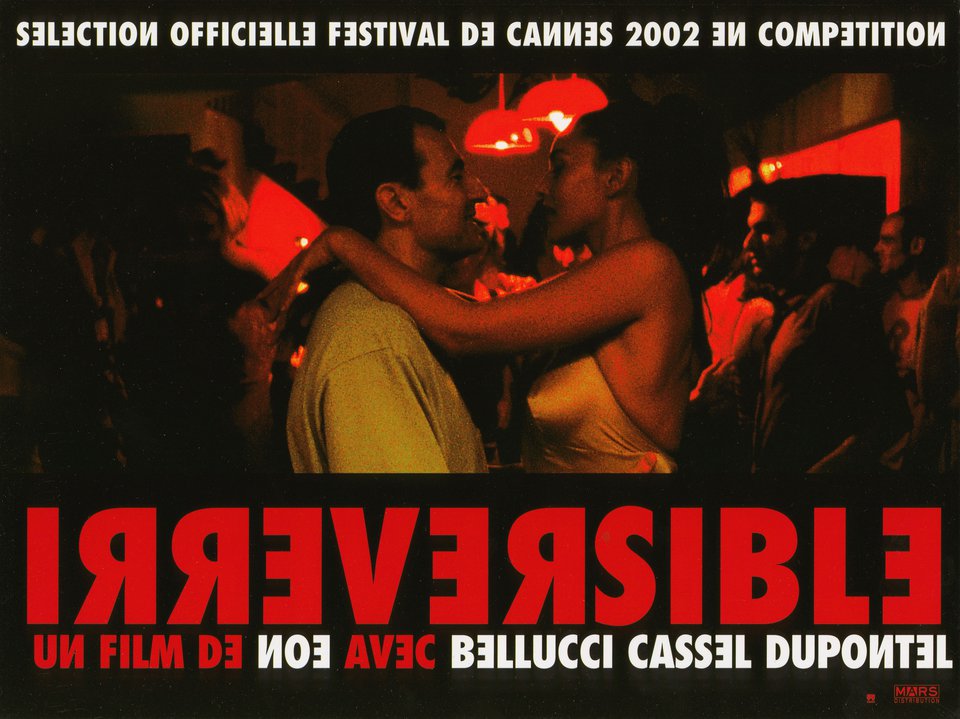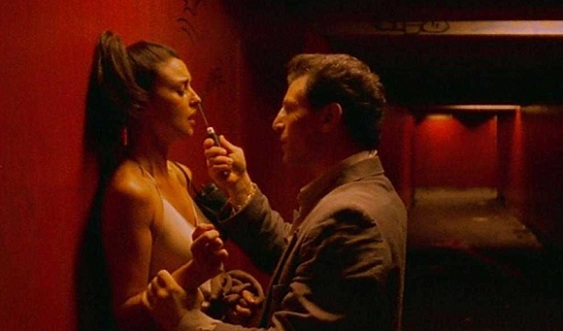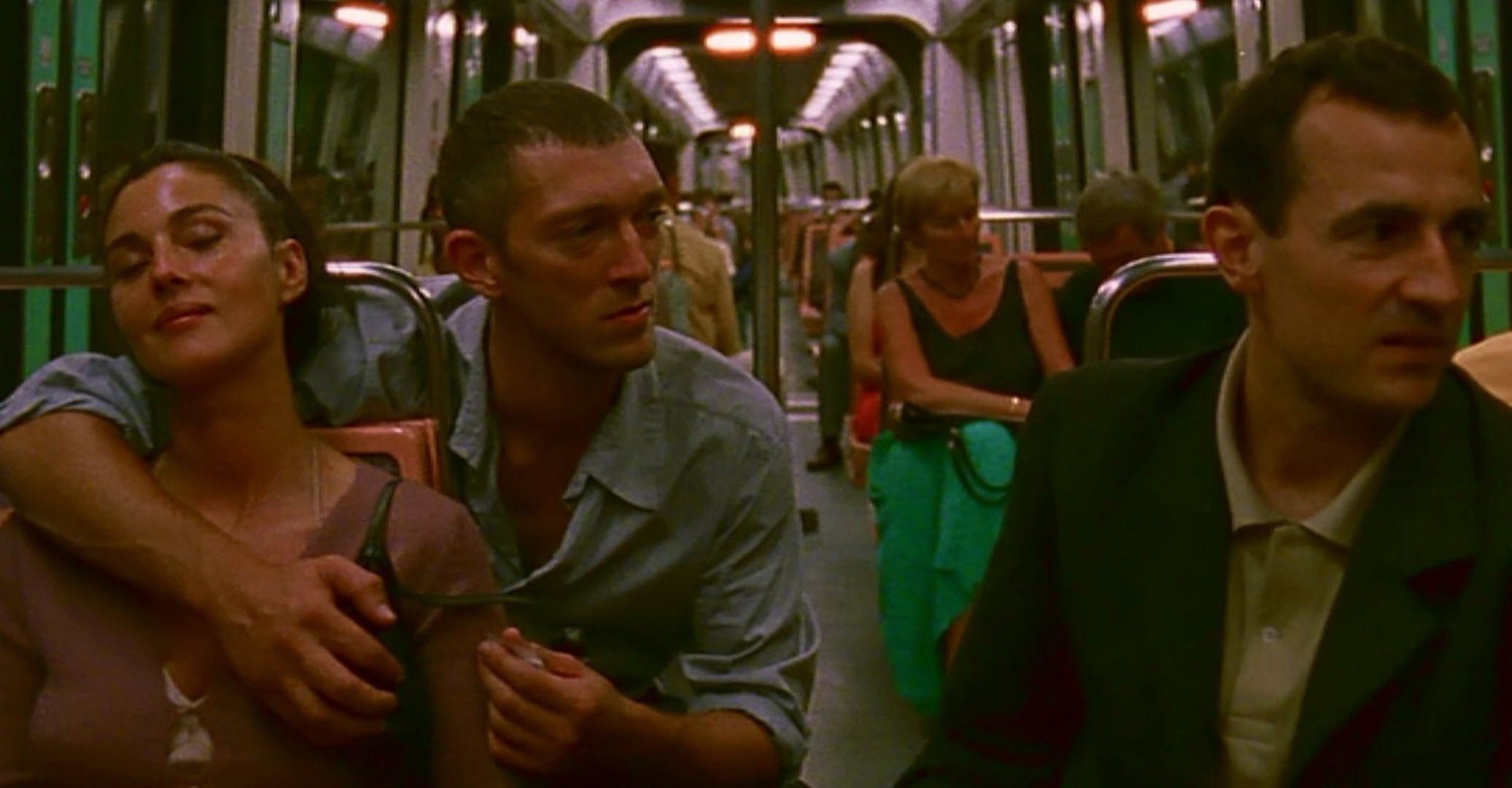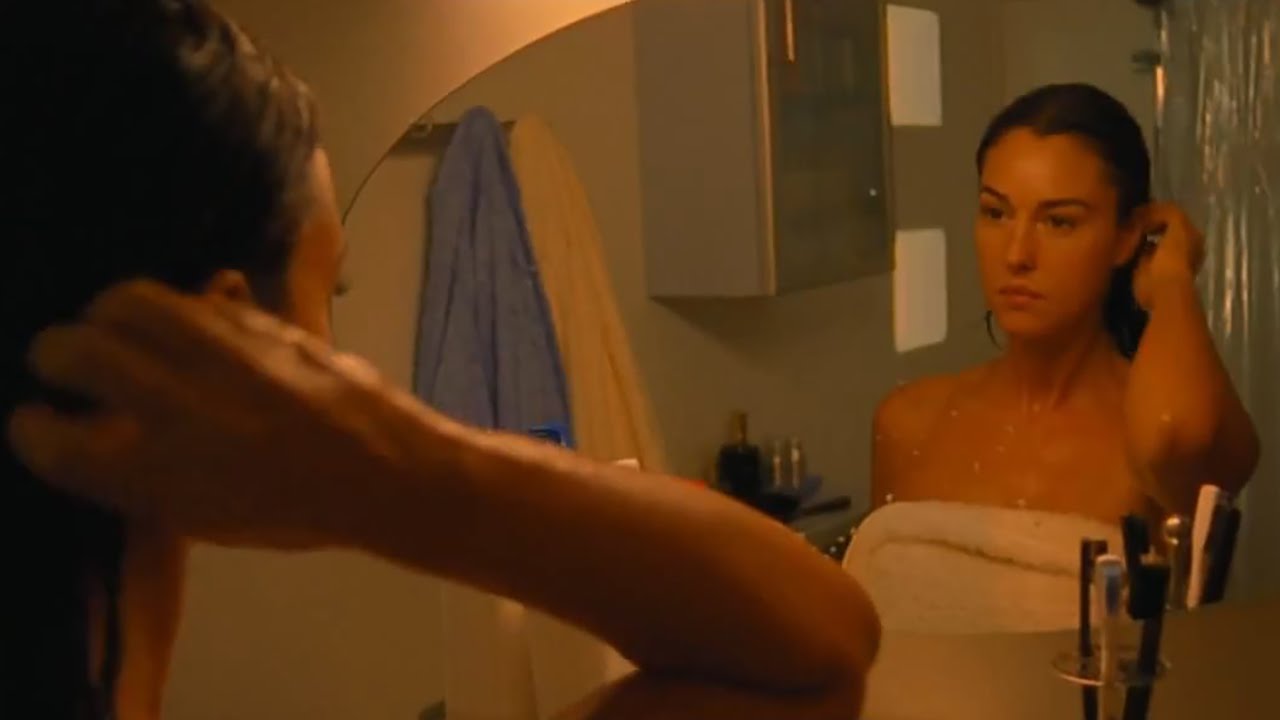Irreversible (2002)

Irréversible (2002) is a French psychological thriller and experimental horror film directed by Gaspar Noé. Known for its controversial and disturbing content, the film gained international attention for its unconventional narrative structure and intense portrayal of violence. The story, which is told in reverse chronological order, explores the devastating consequences of a brutal crime and how a single event can irrevocably alter the course of life. Through its shocking imagery, disturbing themes, and bold cinematic techniques, Irréversible challenges the boundaries of filmmaking and confronts audiences with raw emotional and psychological intensity.
The plot of Irréversible revolves around the violent rape of a woman named Alex, portrayed by Monica Bellucci, and the subsequent quest for revenge by her partner, Marcus (Vincent Cassel), and his friend Pierre (Albert Dupontel). The film begins with the aftermath of Alex’s assault, as Marcus and Pierre frantically search for the man responsible for the crime. However, the story is not told in a linear fashion. Instead, it unfolds in reverse order, starting with the violent confrontation and gradually revealing the events leading up to the attack. This unconventional narrative structure creates a disorienting effect, forcing the audience to experience the film’s emotional weight in a fragmented, almost chaotic manner.
One of the most striking aspects of Irréversible is its unflinching depiction of violence. The rape scene, in particular, is harrowing and uncomfortably drawn-out, capturing the excruciating pain and trauma of the victim in a way that few films dare to. The intensity of the scene, coupled with the film’s decision to show it in real time, creates an almost unbearable sense of discomfort. This raw and brutal approach to violence is part of Noé’s larger exploration of time, memory, and the irreversible nature of certain actions. The film forces viewers to confront the horrors of violence and its aftermath in a visceral, unmediated way.
In addition to its graphic content, Irréversible is notable for its technical innovations. The film’s cinematography, by renowned director of photography Thierry Abarguen, is deliberately disorienting. The camera work is often shaky, and the use of long, unbroken takes adds to the sense of unease. One of the most notable sequences is the long tracking shot through a nightclub, which lasts several minutes and features disorienting camera movements, bright lights, and disturbing noises. This technique enhances the chaotic, oppressive atmosphere of the film, forcing the audience to experience the confusion and panic of the characters in real time.

Another significant aspect of Irréversible is its exploration of time and causality. By telling the story in reverse, Noé challenges conventional storytelling methods and invites the audience to reflect on how our perceptions of events are shaped by the knowledge of their outcomes. As the narrative moves backward, we see the emotional and psychological impact of Alex’s assault unfold, which gives the audience a deeper understanding of the characters’ motivations and actions. The reversal of time in the film highlights the theme of irreversibility — once a traumatic event has occurred, it cannot be undone, and the consequences are far-reaching and permanent.

Despite its critical acclaim and bold filmmaking, Irréversible has sparked significant controversy due to its graphic and disturbing content. The film’s portrayal of sexual violence has been a point of contention for many viewers, with some criticizing it for being exploitative or unnecessarily graphic. Others argue that the film uses its disturbing imagery to make a profound statement about the nature of violence and its impact on human lives. Regardless of one’s opinion on its content, it is undeniable that Irréversible is a film that provokes strong reactions and forces audiences to confront uncomfortable truths about human behavior, trauma, and vengeance.

In conclusion, Irréversible is a challenging and provocative film that pushes the boundaries of both cinema and the viewer’s emotional tolerance. Gaspar Noé’s direction, coupled with powerful performances from the cast, creates a haunting and unforgettable cinematic experience. Through its graphic depiction of violence, its experimental narrative structure, and its exploration of the irreversible nature of trauma, the film forces the audience to engage with difficult and unsettling themes. While not for the faint of heart, Irréversible is a film that lingers long after the credits roll, leaving viewers to grapple with its emotional weight and moral questions.











